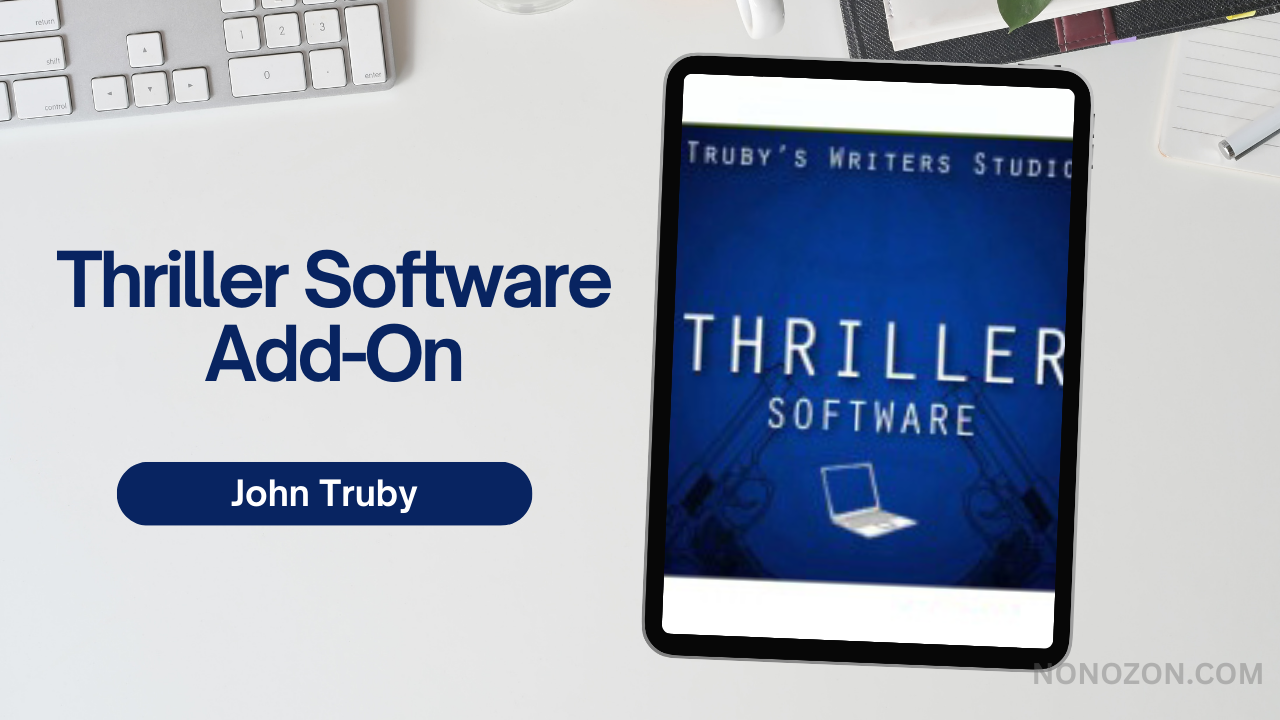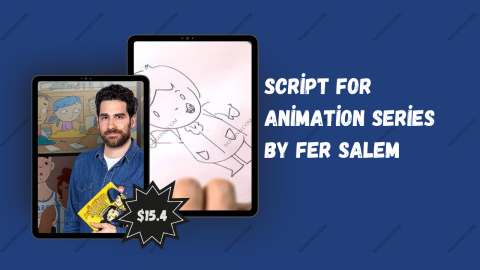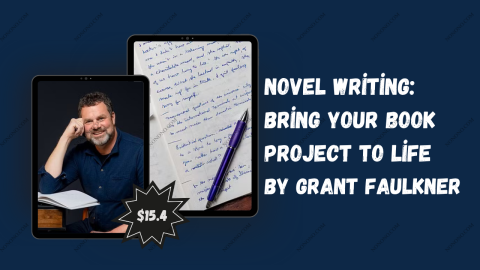Thriller Software Add-On
by John Truby
Review of the Thriller Software Add-On by John Truby
Check proof of content here:

Introduction: Crafting Suspenseful Narratives
The art of storytelling requires meticulous attention to every beat, twist, and turn, particularly in the thriller genre, where suspense and excitement are paramount. John Truby’s Thriller Software Add-On stands out as a guiding tool for writers navigating the complex landscape of thriller writing. Developed to complement Truby’s well-known blockbuster program, this add-on aims to help writers craft gripping narratives filled with tension and unexpected turns.
With its specialized features, such as custom story beats and character mapping, the software seeks to enhance the writing process in ways that resonate with thriller authors. However, like any tool, it has its pros and cons. This review explores the software’s functionality, user experience, pricing, and overall impact on the writing process.
Understanding the Core Features of the Software
John Truby’s Thriller Add-On includes several key features designed specifically for thriller writers. Let’s dive into these functions to better understand the software's value.
Specialized Story Beats
A major strength of the software is its set of specialized story beats tailored to the thriller genre. Given the genre's emphasis on complex plots, these beats guide writers in structuring a well-paced narrative. Think of it as the skeleton of your story, providing the foundation for everything that follows.
- Examples of Story Beats:
Setup: Introducing the protagonist and their world.
Inciting Incident: The pivotal event that forces the protagonist into action.
Climactic Confrontation: The intense climax where all the story threads converge.
These beats help writers adhere to thriller conventions while still leaving room for creativity and originality.
Character and Nightmare Maps
Another notable feature is the character and nightmare maps, which enable writers to visualize the psychological and emotional layers of their characters. This tool is particularly useful in thrillers, where characters often battle inner demons or unresolved trauma.
- Character Map Elements:
Desires and Fears: What the character wants versus what they are afraid of.
Character Arc: The evolution of the character throughout the plot.
These visual tools enhance both character depth and alignment with the overall story arc, ensuring a strong emotional connection with the audience.

Professional Techniques from Truby’s Thriller Class
The software integrates professional techniques directly from John Truby’s renowned thriller classes. These methods provide invaluable insights, helping writers refine their skills in creating suspenseful, engaging narratives. Writers benefit from a deep understanding of the nuances of thriller writing, learning how to build tension and keep the audience on the edge of their seats.
Summary of Key Features
| Feature | Description |
|---|---|
| Specialized Story Beats | Guide for pacing in thriller writing |
| Character and Nightmare Maps | Visual tools for understanding character psychology |
| Professional Techniques | Insights from Truby’s classes |
With these features, the software offers a comprehensive toolkit for thriller writers, helping them develop well-rounded stories and characters.
User Feedback: Praise and Critique
As with any software, user feedback is mixed, with both positive and negative comments highlighting its strengths and weaknesses.
Positive Feedback: Structure and Organization
Many users praise the software’s structured approach, which is particularly beneficial when working within the often complex thriller genre. Writers appreciate how it organizes script elements, allowing them to compare their work with established genre conventions. The clarity it brings to plot development and tension-building has rejuvenated the writing process for many, helping to eliminate the chaos that often accompanies new drafts.
- Benefits Noted:
Clarity in Plot Development: Clear guidance on escalating tension and stakes.
Comparative Learning: The ability to learn from genre standards and apply them to one’s own writing.
This clear methodology brings a sense of control to the writing process, much like a lighthouse guiding a ship through stormy seas.
Critiques: Dated Interface
Despite its many strengths, some users have raised concerns about the dated interface. Several reviewers liken it to software from the 1980s, which, in today’s world of sleek, modern design, feels clunky and outdated. Given that a well-designed interface is crucial to a smooth user experience, these critiques are worth noting.
- Specific Concerns:
Visual Appeal: The interface does not meet current design expectations.
Usability Issues: Navigating the software can be cumbersome due to its outdated design.
Although the content remains valuable, the presentation can detract from the overall experience, potentially frustrating users in the midst of their creative process.
Pricing vs. Value
The cost of the software is another common point of discussion. Users often point to the high price tag, with initial costs around $300 and additional expenses for extra features. This financial commitment raises questions about the overall value of the software.
- Cost Breakdown:
Initial Purchase: Approximately $300.
Add-Ons: Extra costs may accrue for additional features.
For some writers, the price is justified by the depth of insight and tools provided. However, for others, particularly new or budget-conscious writers, the cost may seem prohibitive.
Balancing Pros and Cons
Weighing the pros and cons of Truby’s thriller software is crucial for anyone considering its purchase. On the one hand, the software offers robust tools that can elevate a writer’s thriller writing by providing clear structure, psychological mapping, and expert insights. On the other hand, the dated interface and high price tag pose challenges for some users.
Advantages:
Comprehensive Toolkit: Tools designed specifically for thriller writers.
Expert Guidance: Truby’s professional techniques provide valuable insights.
Improved Organization: Clearer plot and character structuring enhance storytelling.
Disadvantages:
Dated Interface: The user interface may hinder the creative process.
High Cost: The price may be prohibitive for some writers.
Niche Focus: The software is tailored specifically for thrillers, limiting its utility for those seeking a broader writing toolkit.
Conclusion: Navigating the Writing Terrain
John Truby’s Thriller Software Add-On offers a wealth of features that can significantly aid writers in crafting suspenseful and dynamic thrillers. While it excels in providing structure, character insights, and expert guidance, the outdated interface and high cost present notable drawbacks. Writers should carefully consider these factors before deciding whether this software aligns with their needs and budget.
Ultimately, whether the software is seen as a valuable investment or an expensive indulgence depends on individual goals and the importance placed on using professional tools to elevate one’s storytelling craft.




